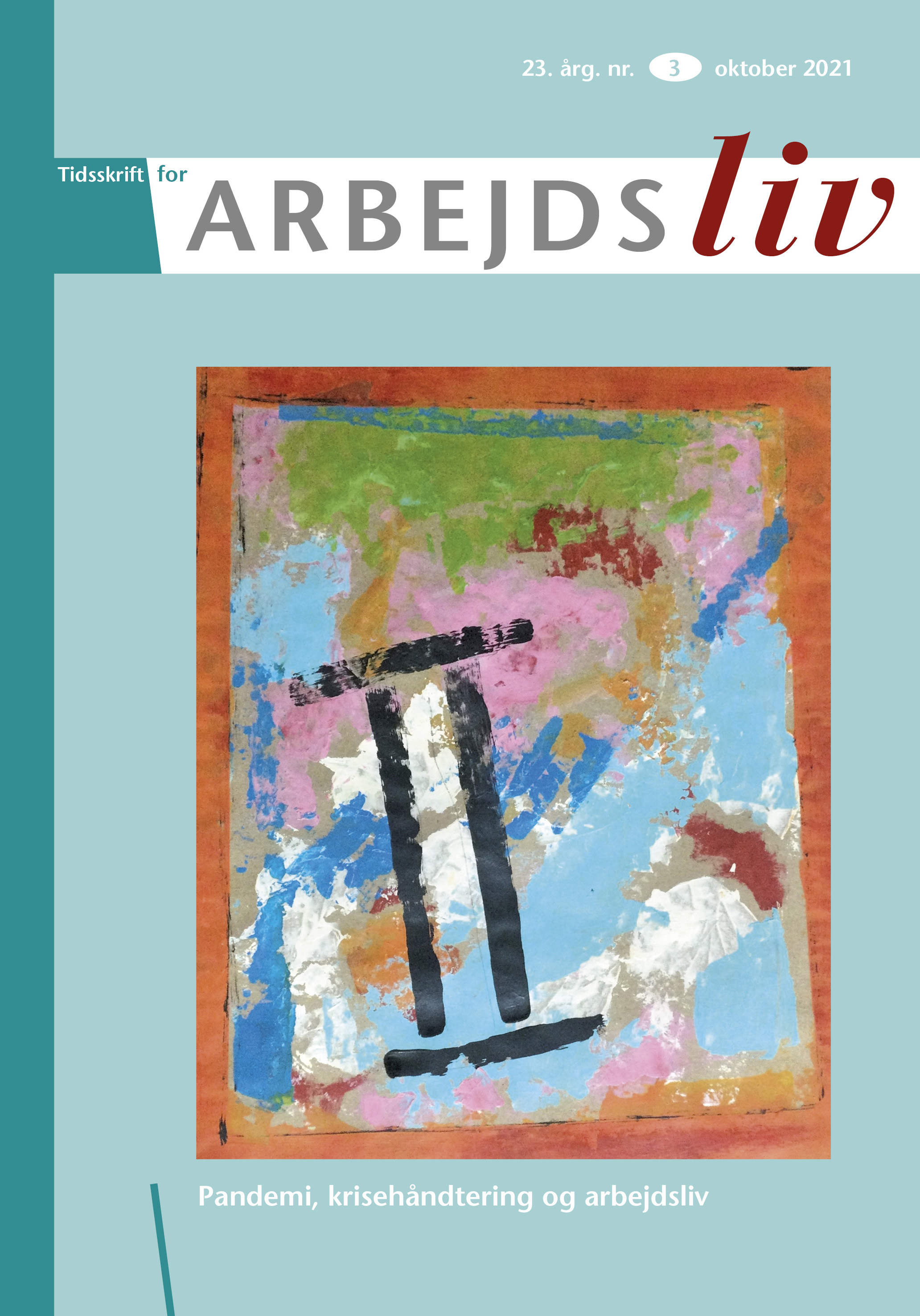The Nordic COVID 19 relief packages and non-standard workers-Policy learning and exchange of good practices from using universal and targeted measures
DOI:
https://doi.org/10.7146/tfa.v23i3.129430Keywords:
Coronakrise, Atypisk beskæftigede, Arbejdsfordeling, Dagpenge og hjælpepakker for freelancereAbstract
The Nordic governments have – similar to the rest of Europe – launched a series of relief packages aimed to help companies and employees cope with the COVID crisis. This article examines how and whom the Nordic relief packages cover on the labour market. Analytically, we draw on the welfare and segmentation literature and assume that the types of relief packages in the individual Nordic countries – universal and targeted measures – impact certain groups‘ access to the relief packages and thus contribute to an institutional embedded (in)equality. We find that Iceland, Norway and Finland to a greater extent has relied on universal relief packages which seem to cover more groups of non-standard workers and thus implicitly seem to contribute to equality. By contrast, Denmark and Sweden have a greater extent relied on targeted relief packages that appear less inclusive, but often more generous than the other Nordic countries.
Downloads
Published
How to Cite
Issue
Section
License

This work is licensed under a Creative Commons Attribution-NonCommercial 4.0 International License.
Forfattere, der publicerer deres værker via dette tidsskrift, accepterer følgende vilkår:
- Forfattere bevarer deres ophavsret og giver tidsskriftet ret til første publicering, samtidigt med at værket ét år efter publiceringen er omfattet af en Creative Commons Attribution-licens, der giver andre ret til at dele værket med en anerkendelse af værkets forfatter og første publicering i nærværende tidsskrift.
- Forfattere kan indgå flere separate kontraktlige aftaler om ikke-eksklusiv distribution af tidsskriftets publicerede version af værket (f.eks. sende det til et institutionslager eller udgive det i en bog), med en anerkendelse af værkets første publicering i nærværende tidsskrift.
- Forfattere har ret til og opfordres til at publicere deres værker online (f.eks. i institutionslagre eller på deres websted) forud for og under manuskriptprocessen, da dette kan føre til produktive udvekslinger, samt tidligere og større citater fra publicerede værker (se The Effect of Open Access).





